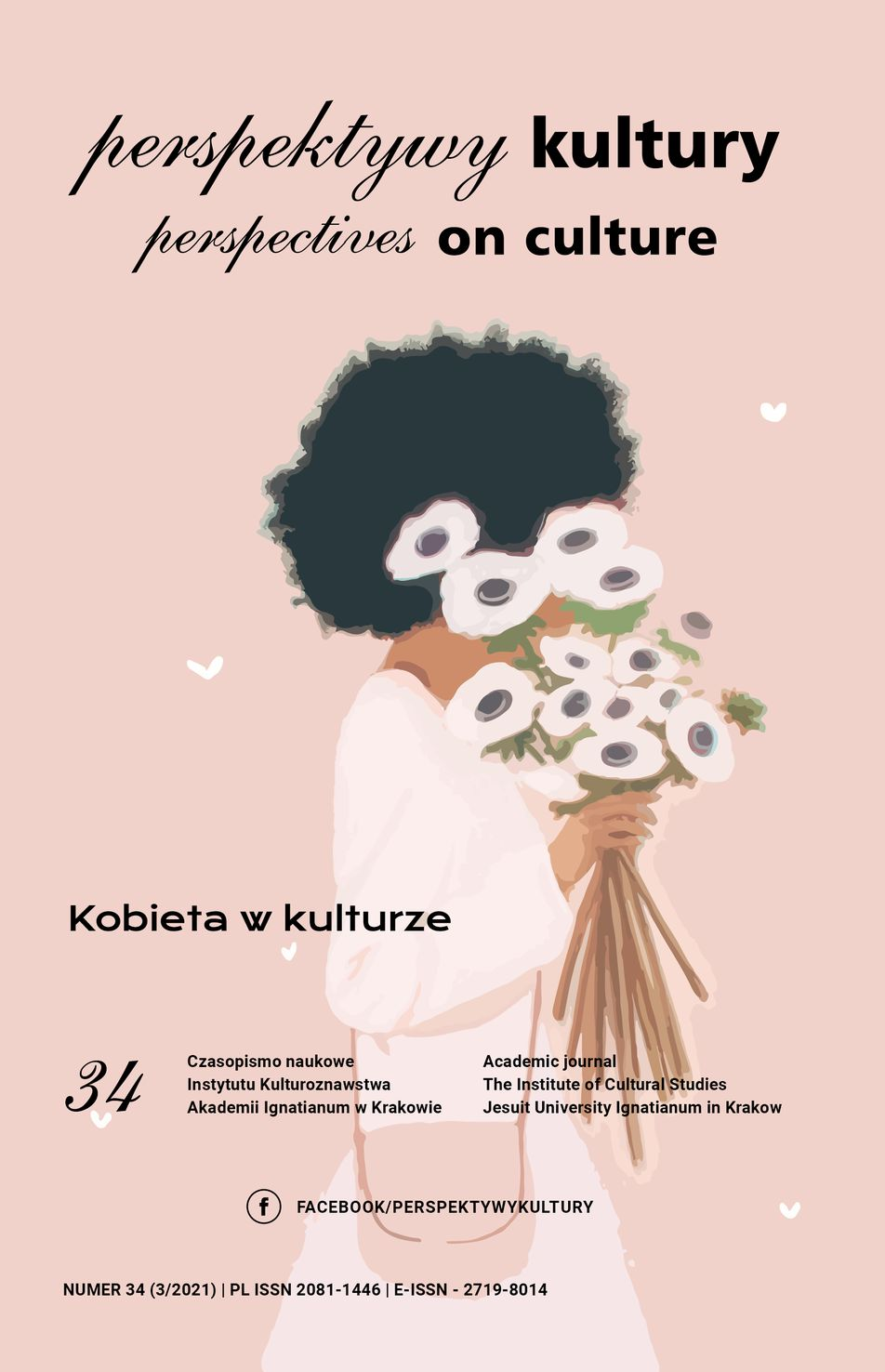Gender Identification in the Russian Cultural Discourse
From the Middle Ages to Enlightenment
Abstract
The article examines the process of transformation of ideas about gen- der identity on the material of Russian culture 16th and the beginning of the 18th century. The main goal of the work is the analysis and description of differences in the concept of gender and age characteristics, as well as the description and analysis of the process of the formation of female dis- course as independent. According to the authors of the study, the identi- fication of a man and a woman from the point of view of belonging to the home (gender, family) as a whole, which is belong to traditional culture, does not imply an independent gender identity, but only a functional one. At the same time, the fixation of the functions of the wife and husband, as well as servants and children (“Domostroy”) leads to the fact that the cus- tom acquires a normative character and, as a result, each of the functions acquires legal independence, which makes it possible, on the one hand, to transfer the structure of the home (as the relationship of functions) to other cultural phenomena (for example, the state), as A. Kurbsky does, and on the other hand, suppose the independence of individual functions, the possibility of their absence in the system, the features of such point of view are demonstrated by Ivan IV, although on the whole they retain traditional semantic patterns. But it is this approach that allows independent female images to emerge in the 17th century in the person of the teachers of the schismatic Morozova and Urusova or princess Sophia. At the beginning of the 18th century, a complete reformatting of the cultural sphere takes place and one can speak of an independent female discourse, like the male one. In the second half of the 18th century, a man and a woman were already perceived separately, although, for example, for M. Shcherbatov it was the result of damage to morals.
References
Alferov, A.D. i Gruzinskij, A.E. (1907). Russkaya literatura XVIII veka. Khrestomatiya [The Russian literature of the XVIII century. Reader]. Moscow: Shkola.
Buslaev, F.I. (1990). Ideal'ny'e zhenskie kharaktery' Drevnej Rusi [Ideal female characters of Ancient Russia]. W: F.I. Buslaev, O literature. Issledovaniya. Stat'i [On Literature. Researches. Articles]. Moscow: Khudozhestvennaya literatura, 262–293.
Chumakova, T.V. (2004). Tradiczii zhenskoj svyatosti v russkoj kul'ture XI– XVII vv. [The tradition of female sanctity in the Russian culture of the XI– XVII centuries]. Vestnik SPbGU, t. 4, 24–30.
Dolgorukaya, N. (1913). Svoyeruchnyye zapiski knyagini Natal’i Borisovny Dolgorukoy, docheri g. fel'dmarshala grafa Borisa Petrovi [Handwritten notes of Princess Natalya Borisovna Dolgoruka, daughter of Mr. Field Marshal Count Boris Petrovich Sheremetyev]. Sankt Petersburg: Tipografiya “Sirius”.
Ikonnikov, B.C. (1874). Russkaya zhenshhina nakanune reformy' Petra Velikogo i posle nee [Russian woman on the eve of the reform of Peter the Great and after her]. Kiev: Tipografiya imperatorskogo universiteta.
Ikonnikov, V.S. (1897). Znachenie czarstvovaniya Ekateriny' II [The Significance of the reign of Catherine II]. Kiev: Tipografiya imperatorskogo universiteta.
Kolesov, V.V. i Rozhdestvenskaya, V.V. (red.). Domostroy (2007). Wydanie trzecie. Leningrad: Nauka.
Likhachev, D.S. (1987). Chelovek v kul'ture Drevnej Rusi [Man in the culture of Ancient Russia] [Selected works in 3 vol.]. Leningrad: Khudozhestvennaya literatura, 3–165.
Lotman, Y.M. (1992). O semiosfere [Universe of the mind]. W: Y.M. Lotman, Izbranny'e stat'i v trekh tomakh [Selected articles in 3 vol.]. T. 1. Stat'i po semiotike i topologii kul'tury'. Tallinn: Aleksandra.
Lurie, Y.S. i Rykov, J.D. (red.). (1993). Perepiska Ivana Groznogo s Andreem Kurbskim [Correspondence of Ivan The Terrible with Andrei Kurbsky]. Moscow: Nauka.
Pushkareva, N.L. (1989). Zhenshhiny' Drevnej Rusi [Women of Ancient Russia]. Moscow: My'sl'.
Pushkareva, N.L. (1996). Zhenshhiny' Rossii i Evropy' na poroge Novogo vremeni [Women of Russia and Europe on the threshold of Modern times]. Moscow: Izdatel'stvo IE'A RAN.
Romanov, B.A. (2002). Lyudi i nravy' Drevnej Rusi: Istoriko-by'tovy'e ocherki XI–XIII vv. [People and customs of Ancient Russia: historical and everyday life of the XI–XIII centuries]. Moscow: Territoriya.
Shcherbatov, M.M. (1858). O povrezhdenii nravov v Rossii [On the corruption of morals in Russia]. W: „O Povrezhdenii nravov v Rossii” knyazya
M. Shherbatova i „Puteshestvie” A. Radishheva s predisloviem Iskandera [„On the Corruption of morals in Russia” Prince M. Shcherbatov, and „Journey” Radishcheva A. with a Preface by Iskander]. London: Trubner & Co, 15–114.
Slovo Daniila Zatochnika po redakcziyam XII i XIII vv. i ikh peredelkam [The Word of Daniel The Exile to the editors of the XII and XIII centuries and their alterations] (1932). W: Pamyatniki drevnerusskoj literatury'. T. 3 [Monuments of ancient Russian literature, vol. 3]. Leningrad: AN SSSR. Snisarevsky, P.V. (1983). Otnoshenie k zhenshhine v pamyatnikakh russkogo srednevekov`ya (XI–XV vv.) [Attitude towards women in the monuments of the Russian middle ages (XI–XV centuries)]. W: Istoriograficheskie i istoricheskie problemy` russkoj kul'tury' [Historiographical and historical problems of Russian culture]. Moscow: Institut Istorii SSSR, AN SSSR, 26–46.
Solonenko, L.V. (2006). Poe'tika drevnerusskikh zhenskikh zhitij [Poetics of old Russian women’s lives] [PhD text]. Vladivostok: Dalnievostochnyj Gosudarstviennyj Universitet.
Copyright (c) 2021 Jesuit University Ignatianum in Krakow

This work is licensed under a Creative Commons Attribution-NoDerivatives 4.0 International License.
Autor, zgłaszając swój artykuł, wyraża zgodę na korzystanie przez Wydawnictwo Uniwersystet Ignatianum z utworu na następujących polach eksploatacji:
- utrwalania utworu w formie papierowej, a także na nośniku cyfrowym lub magnetycznym;
- zwielokrotnienia utworu dowolną techniką, bez ograniczenia ilości wydań i liczby egzemplarzy;
- rozpowszechniania utworu i jego zwielokrotnionych egzemplarzy na jakimkolwiek nośniku, w tym wprowadzenia do obrotu, sprzedaży, użyczenia, najmu;
- wprowadzenia utworu do pamięci komputera;
- rozpowszechniania utworu w sieciach informatycznych, w tym w sieci Internet;
- publicznego wykonania, wystawienia, wyświetlenia, odtworzenia oraz nadawania i reemitowania, a także publicznego udostępniania utworu w taki sposób, aby każdy mógł mieć do niego dostęp w miejscu i czasie przez siebie wybranym.
Wydawca zobowiązuje się szanować osobiste prawa autorskie do utworu.





